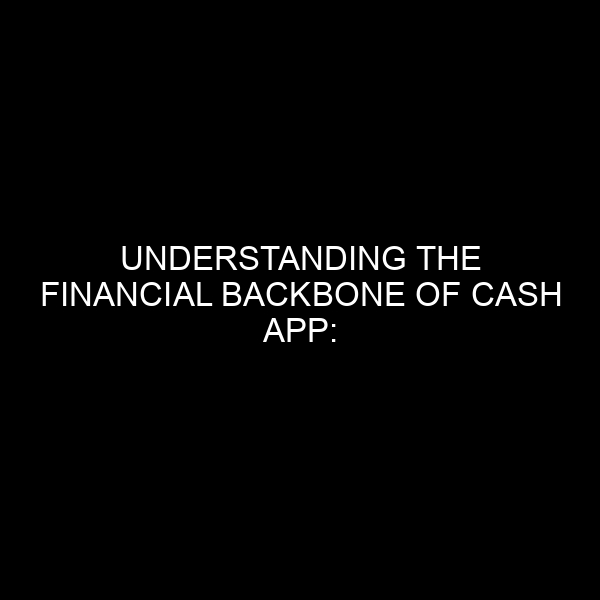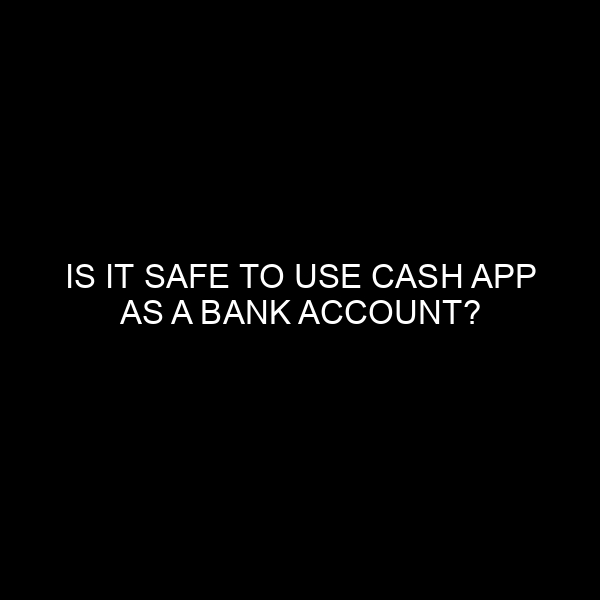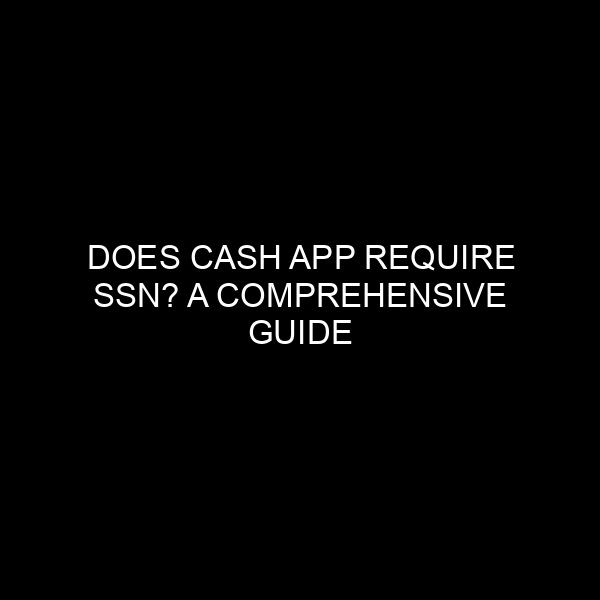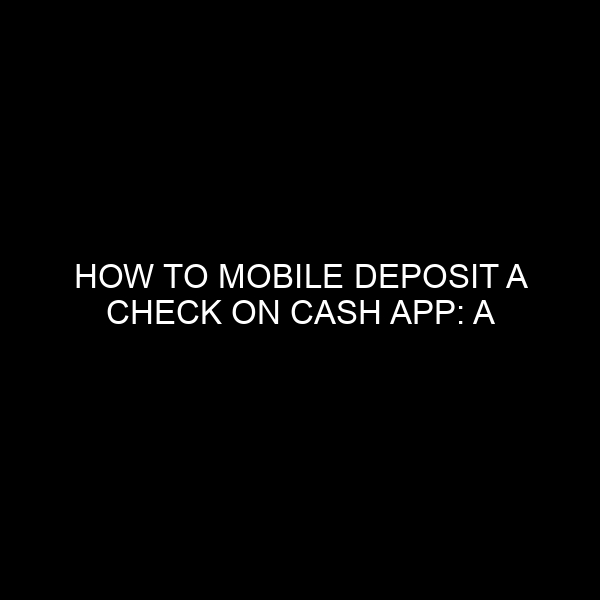How Many Deposits Do You Need to Borrow From Cash App? A Comprehensive Analysis
Cash App, one of the major financial platforms of the digital era, has evolved into more than just a tool for peer-to-peer payments. It’s now also a hub for investment, banking, and even loan services. One of the recurring questions surrounding its loan feature is, “How many deposits do you need to borrow from Cash App?” This query often arises due to the platform’s unique eligibility criteria. Drawing upon my extensive background in the financial market and banking industry, I intend to demystify this question for you.
Introduction to Cash App’s Borrowing Mechanism
Before delving into the deposit requirement, it’s crucial to understand the foundation of Cash App’s borrowing mechanism. Unlike traditional banks that gauge your credit score, income, and other financial credentials, Cash App has its metrics to determine eligibility. One such criterion is the frequency and amount of deposits made into your Cash App account.
Determining Eligibility: The Role of Deposits
Quantity Over Amount
For Cash App, the number of deposits often takes precedence over the amount deposited. This is because the frequency of deposits can indicate a stable flow of income. This stability can be from regular paychecks, consistent client payments, or other recurring income streams. So, while the specific number might vary, regularity is crucial.
Direct Deposits as a Strong Indicator
Cash App emphasizes direct deposits as an essential determinant. Users who frequently receive direct deposits are typically viewed as having a stable source of income, making them more eligible for borrowing. If you’ve set up direct deposit with your employer and consistently receive your paycheck through Cash App, you’re more likely to qualify for its loan services.
Average Deposit Amount Matters, But Not Always
While frequency is paramount, the average amount also plays a role. A steady influx of higher deposits may indicate a higher income level, boosting your chances of approval. However, even users with smaller, yet frequent deposits can qualify, showcasing Cash App’s flexibility and inclusive approach.
Comparing Cash App with Traditional Banking Systems
In traditional banking systems, the focus is heavily skewed towards credit scores, outstanding debts, and the overall credit history of an individual. Cash App, being a digital platform, innovates this process by focusing more on transactional behavior, which includes deposits.
Why Deposits?
Deposits, especially direct ones, are reflective of an individual’s income sources. Regular deposits indicate a steady income, making you less of a risk from a lender’s perspective. By honing in on this aspect, Cash App can make more informed lending decisions for its user base, many of whom might not have a conventional credit history.
Other Eligibility Factors to Consider
While deposits play a pivotal role, Cash App uses an amalgamation of factors to determine your borrowing eligibility:
- Transaction History: How often you transact and the nature of those transactions can impact your eligibility.
- Account Age: Older accounts, indicating longer relationships with Cash App, may have a slight edge.
- Disputed Transactions: A history riddled with disputed transactions can negatively affect your borrowing capacity.
Tips to Enhance Borrowing Eligibility on Cash App
To boost your chances of becoming eligible:
- Consistent Deposits: Ensure a steady flow of deposits, even if they’re not significant in amount.
- Engage More: The more you use Cash App for various services, the better your relationship with the platform, which can indirectly impact your eligibility.
- Maintain Good Financial Health: Avoid frequent negative balances or declined payments.
In Conclusion: A Shift in Financial Paradigms
Cash App’s approach to lending, grounded in deposits and transactional behavior, marks a notable shift from traditional banking methodologies. This approach not only democratizes access to credit for a broader audience but also paves the way for more tailored financial solutions based on actual user behavior.
As digital platforms continue to redefine the financial landscape, understanding and adapting to these changes is crucial. In the context of Cash App, while the specific number of deposits might vary, it’s clear that a consistent and stable deposit history is key to unlocking borrowing potential.






